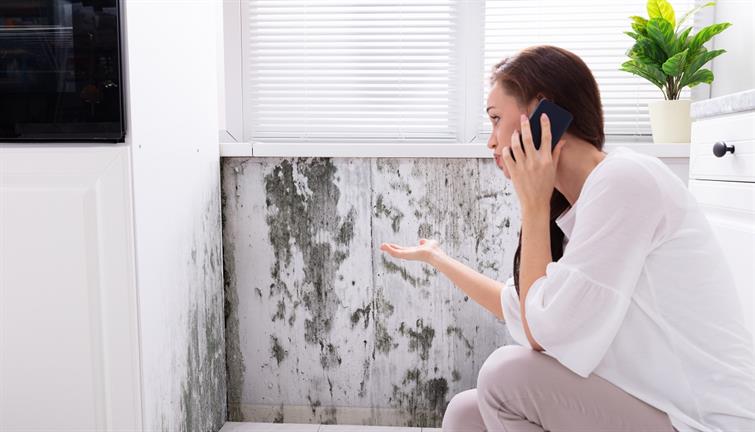

Home / Blog / Home Insurance / Does Home Insurance Cover Mold?

Mold in your home is…well, gross. In addition to being unsightly, mold can damage the structural integrity of your home and it’s bad for your health.
This is why mold insurance is typically built into your homeowner’s insurance policy. Most home insurance policies will cover mold damage, but not if mold was preventable. Only “covered peril” or sudden/unexpected events that bring on mold are eligible for mold remediation.
Covered peril situations are:
If you experience an unexpected peril like a burst pipe, then your insurance plan will pay for mold removal. However, mold remediation is expensive, so even in a covered peril event, your policy may only partially cover the repair bill. It’s not uncommon for insurance providers to cap the overall payout amount, so it’s best to call your provider if you aren’t sure about your coverage.
Insurance companies’ stance on mold is, if it’s preventable, like replacing 45-year-old shingles, then repairing the leaky roof is your responsibility.
Free Home Insurance Comparison - Save up to 30%
No junk mail. No spam calls. Free quotes.
No Signup required
If your home insurance coverage doesn’t include mold, you can add a mold rider to your policy. Your risk level determines your eligibility and cost: old homes, humid States, or previous mold claims will drive up the price. The average annual mold endorsement cost is between $500-$1500.
Free Home Insurance Comparison - Save up to 30%
No junk mail. No spam calls. Free quotes.
No Signup required
Living in an older home with old outfittings (like plumbing) or having pre-existing mold claims is considered risky to an insurance company. Anything deemed risky means you’ll pay a higher premium for coverage, or you won’t be eligible for coverage, so you’re better off removing the current mold yourself.
Even though mold isn’t something that’s on your mind, it’s something you want to be protected against—just in case. Additionally, you also want to ensure that you regularly maintain your house and check for signs of mold to further protect yourself from a hefty mold remediation bill.
Claire Smith Claire is a creative entrepreneur with a variety of marketing and content creation skills, including blog and web copy writing, research, and strategy. She has a Masters in Cultural Studies from Queen's University and is known for thinking laterally about marketing, based on her deep knowledge of people and behavior.